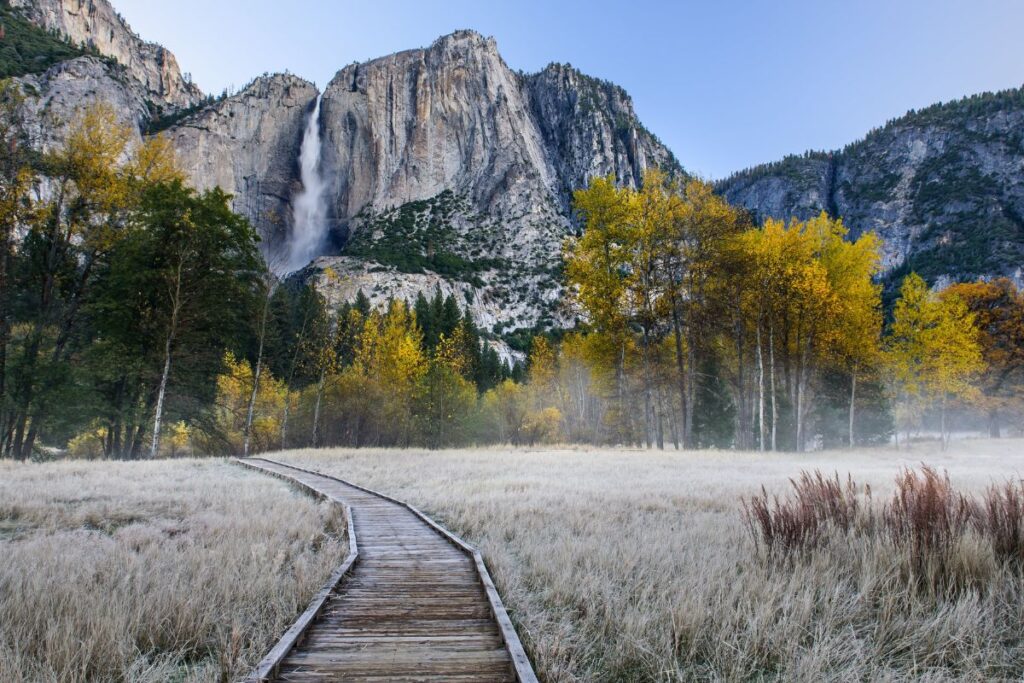
Looking to explore the great outdoors in 2024? The United States is home to a diverse array of national parks that offer stunning landscapes, unique wildlife, and unforgettable adventures. From the rugged mountains of Glacier National Park to the towering redwoods of California’s coast, each park has its own special charm. Here’s a guide to the top 10 national parks you won’t want to miss this year, showcasing their best features and must-see attractions. Whether you’re a seasoned hiker or a casual explorer, these parks promise breathtaking experiences and natural wonders.
1. Glacier National Park
Spanning over 1 million acres in Montana, Glacier National Park is renowned for its dramatic landscapes, including rugged mountain ranges, over 700 pristine lakes, and over 26 glaciers. The park offers diverse hiking trails, such as the Trail of the Cedars, which winds through ancient forests, and the Iceberg Lake Trail, known for its stunning alpine lake views.
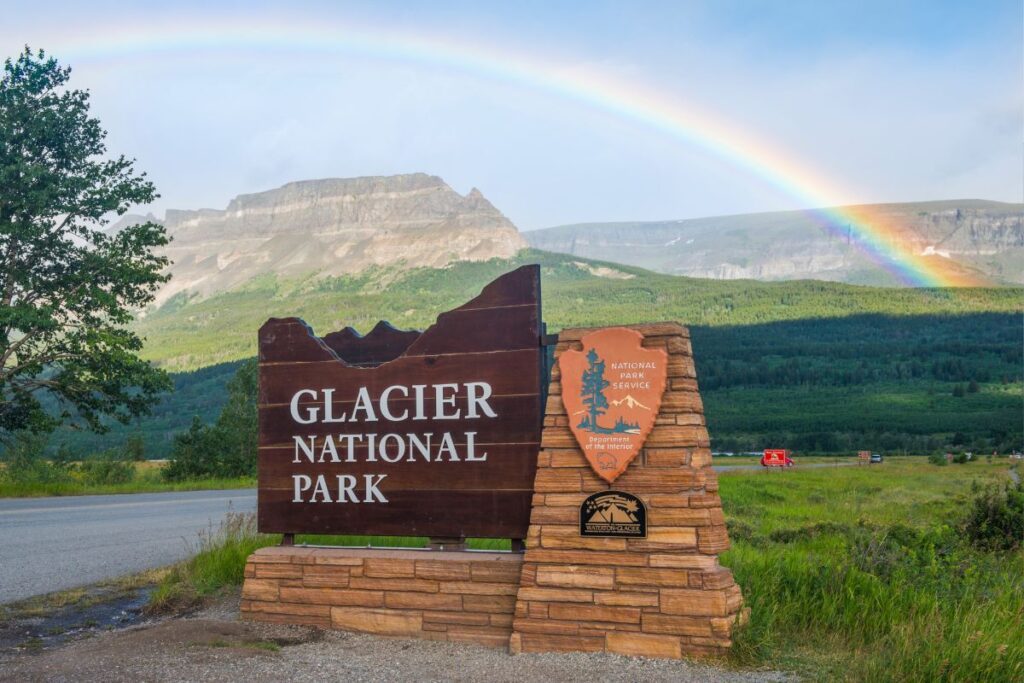
Scenic drives like the Going-to-the-Sun Road offer breathtaking vistas, and the nearby Waterton-Glacier International Peace Park, a UNESCO World Heritage Site, adds a cross-border dimension to your visit. For an enriching experience, enjoy ranger-led activities, from guided hikes to captivating stargazing events.
2. Yellowstone National Park
Yellowstone, the world’s first national park, stretches across Wyoming, Montana, and Idaho, covering over 2.2 million acres. Famous for its geothermal features, the park boasts more than half of the world’s active geysers and spectacular hot springs, such as the Grand Prismatic Spring. Yellowstone’s diverse landscapes include pristine lakes, expansive forests, and bison-filled valleys.
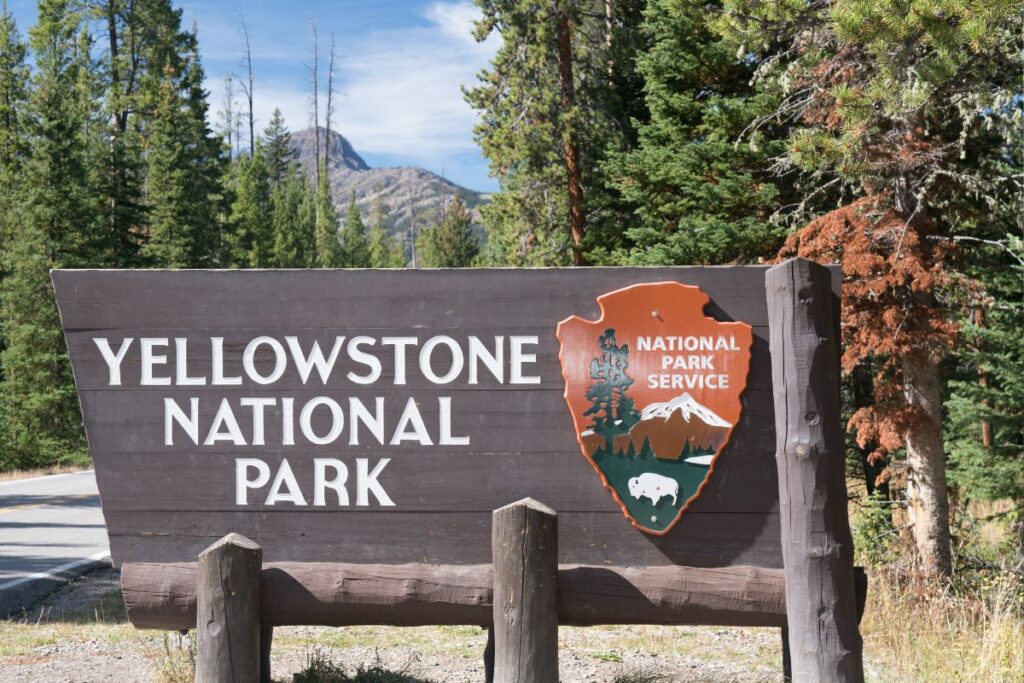
Plan your visit in the spring or fall to avoid the peak summer crowds and still enjoy pleasant weather. Explore the park’s natural wonders through its vast network of trails or join a guided tour to fully appreciate its geothermal phenomena.
3. Yosemite National Park
California’s Yosemite National Park is celebrated for its majestic granite cliffs, including Half Dome and El Capitan, and its iconic waterfalls like Vernal Fall and Bridalveil Fall. Yosemite Valley offers stunning panoramic views from the Tunnel View overlook, which is easily accessible and provides some of the park’s most breathtaking vistas.
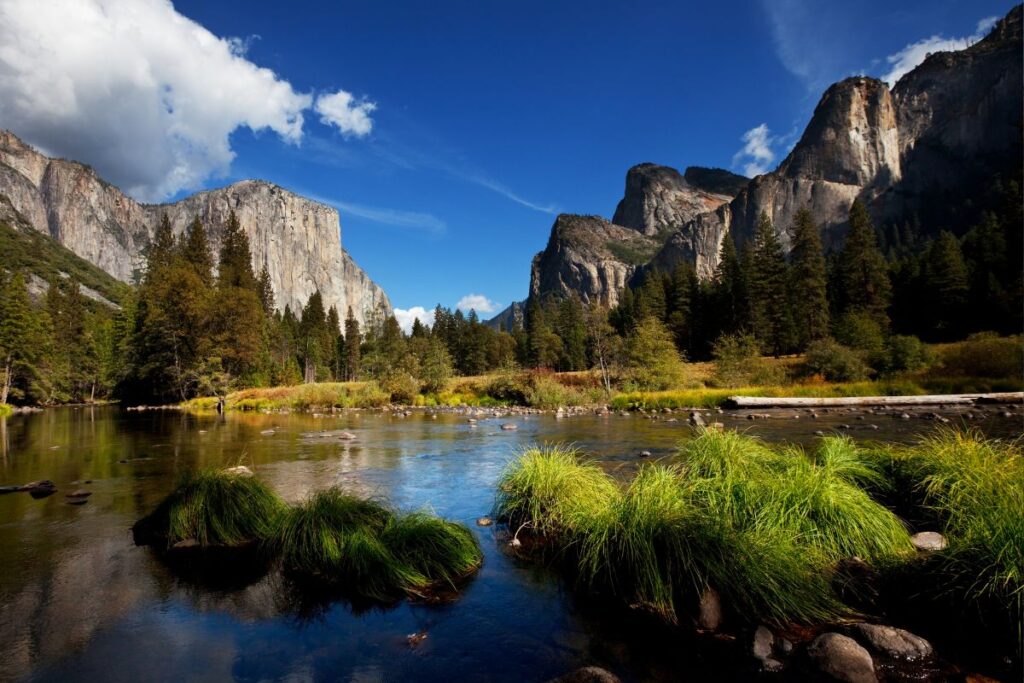
With a variety of hiking options, including trails that lead to pristine lakes and meadows, Yosemite is a haven for outdoor enthusiasts. Due to high demand, make sure to book your campsite well in advance, as availability can fill up quickly.
4. Grand Canyon National Park
The Grand Canyon, a UNESCO World Heritage Site, spans 277 miles and offers one of the most awe-inspiring natural spectacles on the planet. Its immense scale and intricate geological formations make it a must-see. Hiking opportunities abound, from challenging descents into the canyon to more accessible rim trails.
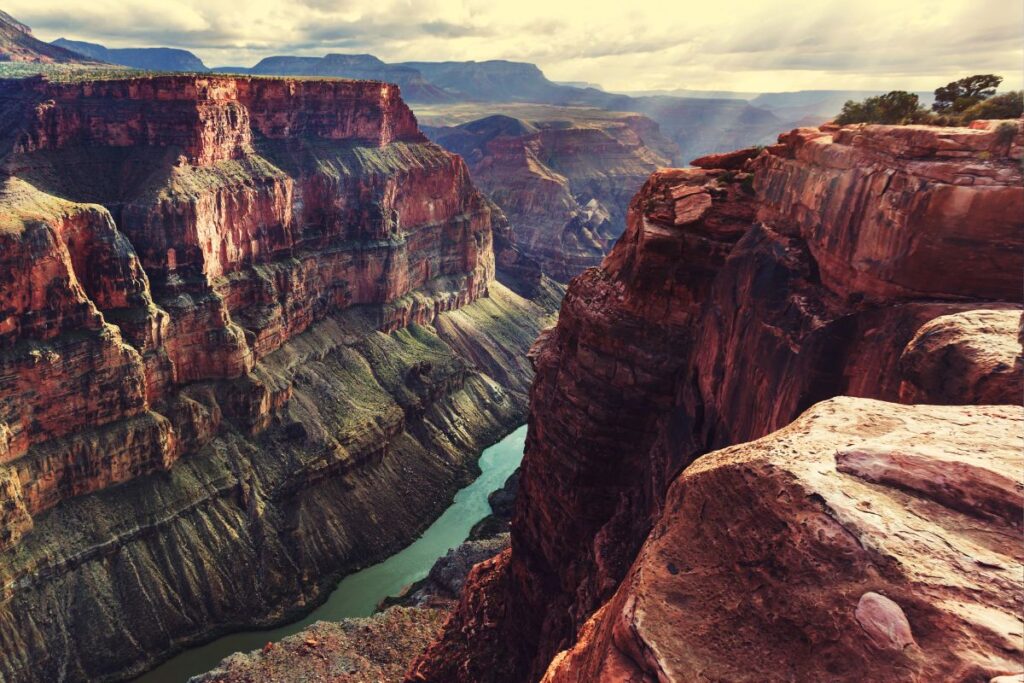
For a different perspective, consider a helicopter tour to see the vast expanse from above. The less-visited North Rim provides a quieter experience, away from the more crowded South Rim. Rafting the Colorado River is another exciting way to experience the canyon’s grandeur.
5. Grand Teton National Park
Located in Wyoming’s Jackson Hole, Grand Teton National Park is known for its striking mountain scenery, including the towering peaks of the Teton Range. The park features over 250 miles of trails that pass through diverse landscapes, from lush forests to alpine lakes.
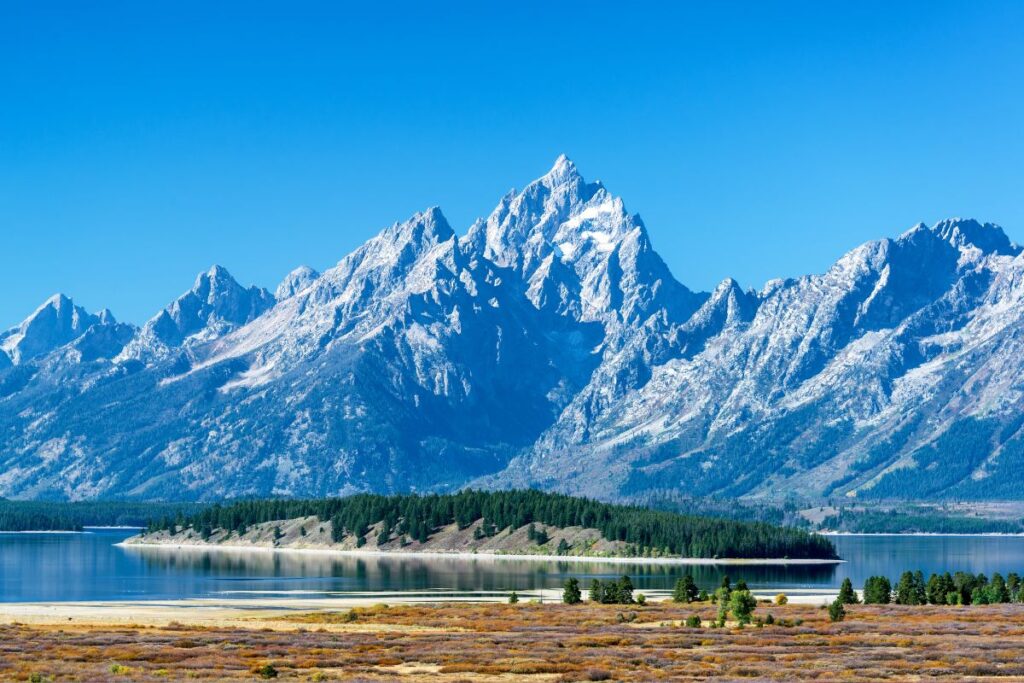
The Cascade Canyon Trail is particularly popular for its waterfalls and glacier-carved vistas. The Craig Thomas Discovery & Visitor Center offers informative exhibits and maps, and visitors can enjoy a documentary film about the park’s natural history and wildlife.
6. Zion National Park
Utah’s Zion National Park is a paradise for adventure seekers with its dramatic canyon landscapes and thrilling hikes. Angels Landing, with its nearly 1,500-foot ascent, offers unparalleled views but requires a permit obtained through an online lottery.
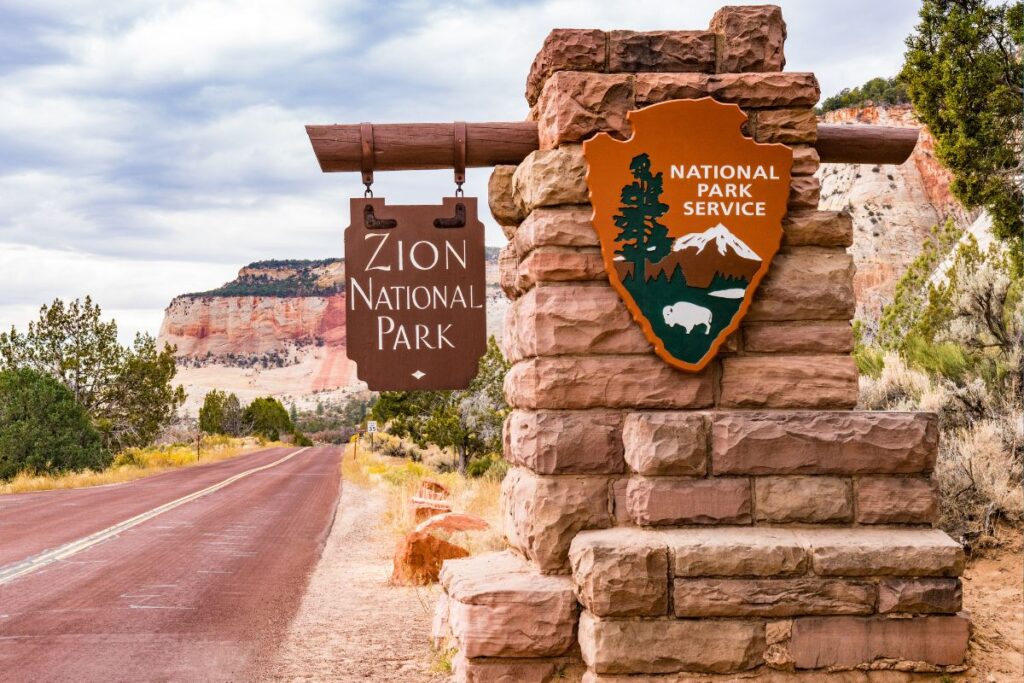
The Narrows hike takes you through the narrowest section of Zion Canyon, wading upstream through the Virgin River. For a more relaxed visit, take a shuttle bus tour along the Zion Canyon Scenic Drive, which passes some of the park’s most famous landmarks and offers a less strenuous way to enjoy the scenery.
7. Denali National Park and Preserve
Denali National Park in Alaska covers a staggering six million acres. It features vast wilderness and the towering Denali, North America’s highest peak at 20,310 feet. The park’s remote and rugged terrain is ideal for those seeking an authentic wilderness experience.
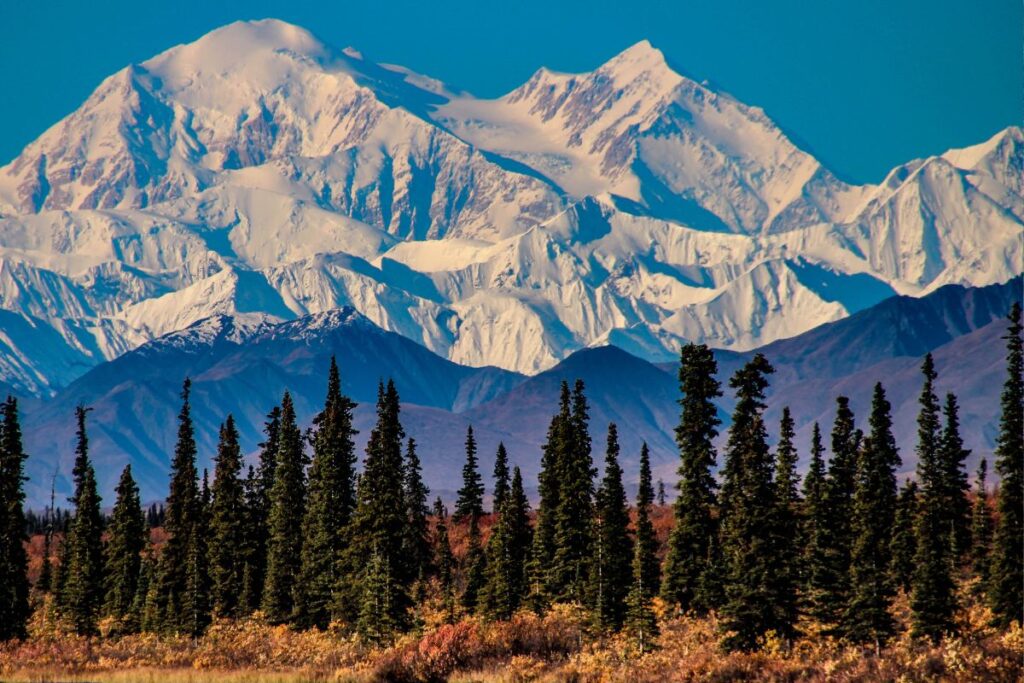
With limited marked trails, visitors can explore with seasonal ranger-led hikes or enjoy guided activities like sled dog demonstrations and snowmobiling. A narrated bus tour along the 92-mile Denali Park Road provides access to scenic highlights such as Savage River and Wonder Lake.
8. Kenai Fjords National Park
Kenai Fjords National Park, located in Alaska, is known for its dramatic glaciers, coastal fjords, and ice fields. One of the park’s main attractions, the Harding Icefield, covers 700 square miles and can be viewed via the challenging Harding Icefield Trail.
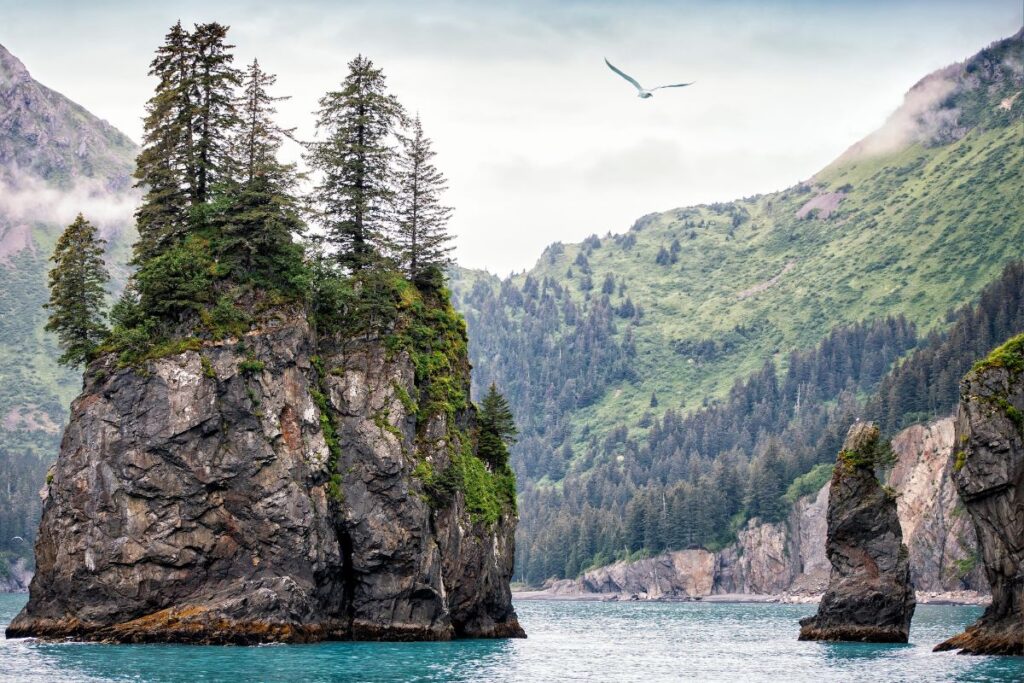
For a more accessible experience, hike the Glacier Overlook Trail or Glacier View Loop Trail to catch stunning vistas of Exit Glacier. Boat and kayak tours offer unique perspectives on the park’s icy landscapes and abundant marine wildlife, including sea otters and whales.
9. Bryce Canyon National Park
Bryce Canyon National Park, situated in southern Utah, is renowned for its extensive collection of hoodoos—tall, thin spires of rock formed by erosion. The park’s dramatic red rock formations create a surreal landscape best explored through its array of hiking trails.
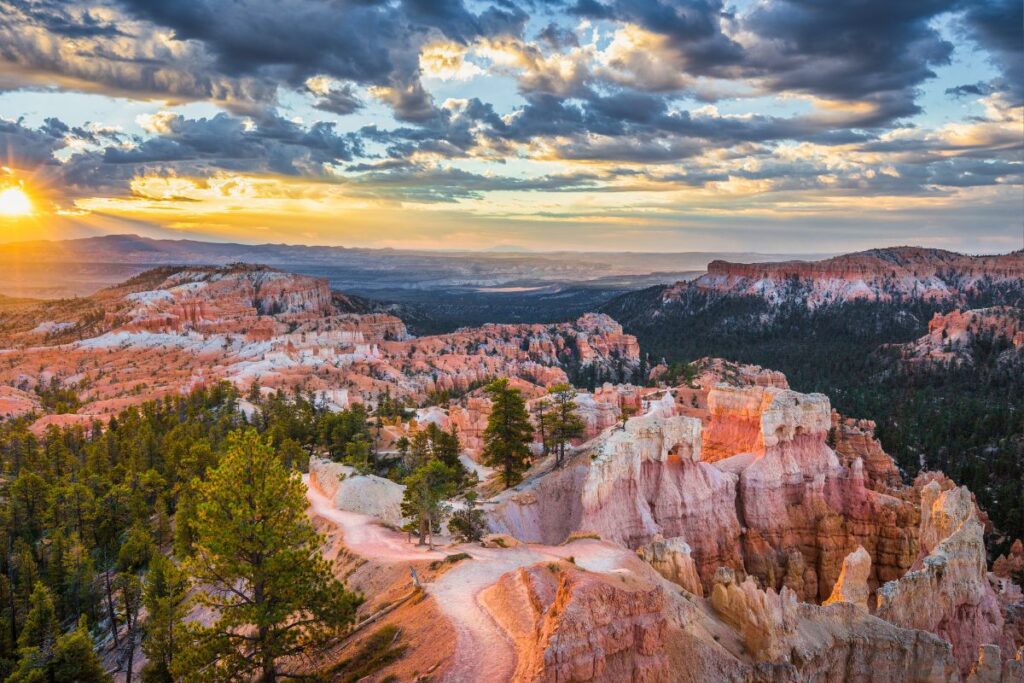
Popular trails offer views of these unique geological structures from various angles. During the winter, Bryce Canyon transforms into a snow-covered wonderland, perfect for snowshoeing and cross-country skiing. Guided horseback rides provide an additional way to experience the park’s scenic beauty.
10. Redwood National and State Parks
Redwood National and State Parks in California are famous for their towering redwood trees, which can reach over 300 feet in height. Visitors can walk among these ancient giants and explore diverse landscapes, including rivers, prairies, and 40 miles of Pacific Coast shoreline.
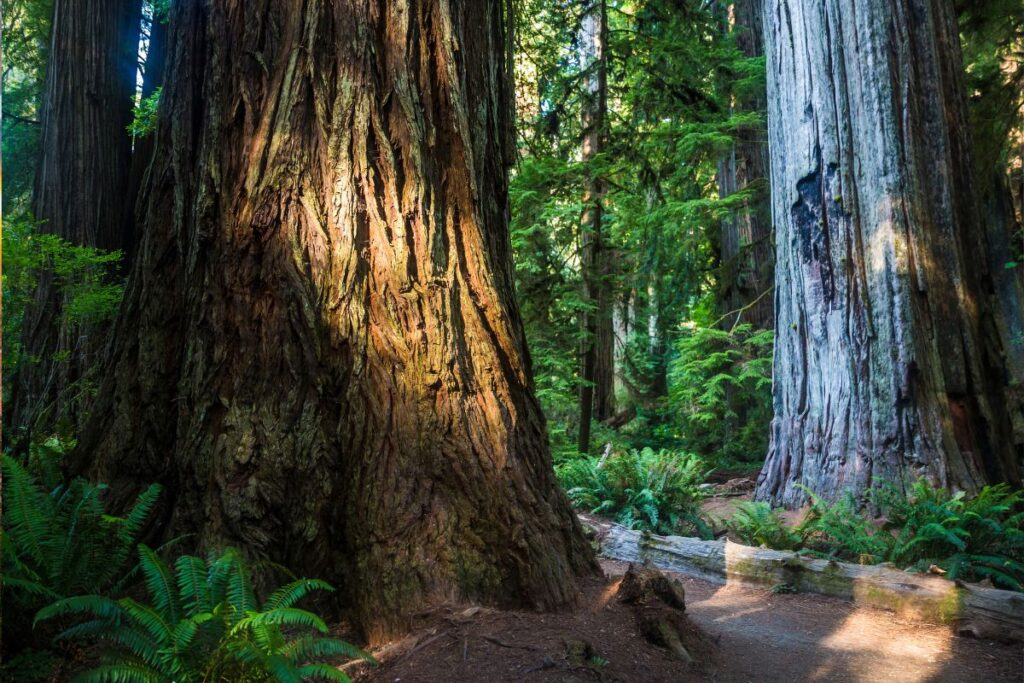
Scenic drives such as Howland Hill Road and Enderts Beach Road offer quick glimpses of the park’s highlights. For those who wish to immerse themselves in nature, the parks offer four developed campgrounds where you can camp under the stars and wake up surrounded by the serene beauty of the redwoods.







